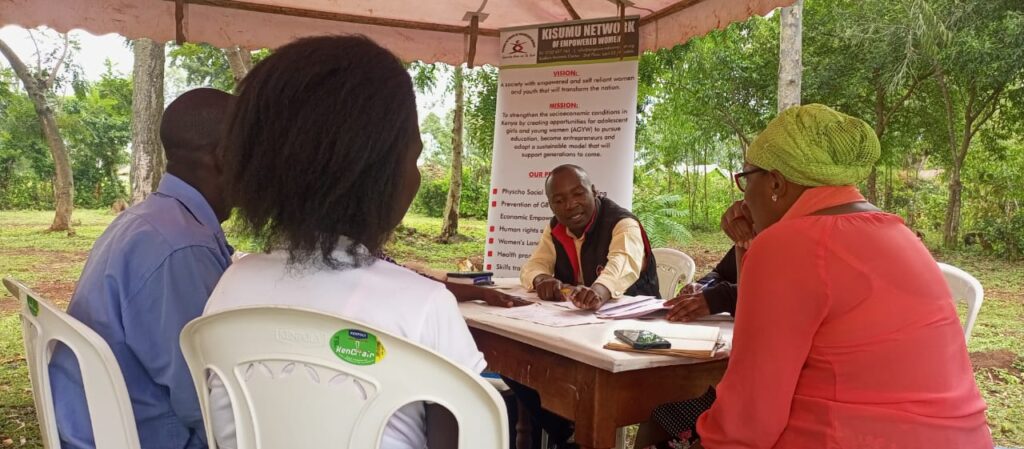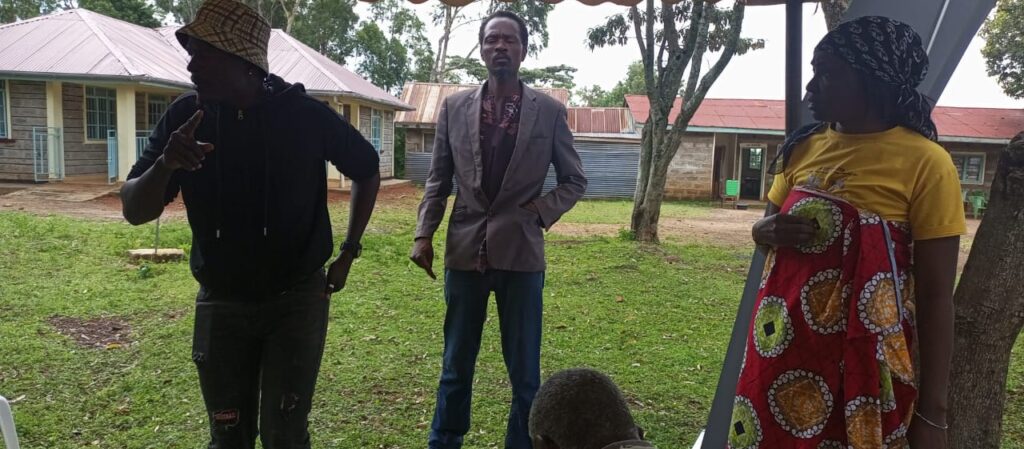Mzee Peter Ombee can vividly remember his youthful age growing up in Kadiang’a village home in Nyakach, Kisumu County.
He cannot recall of any land dispute pitting his family.
He is lucky not to have had any land dispute with his siblings too, and he has since distributed his land among his children.
“In the past, there were fewer land disputes because it was mainly inherited from one generation to another,” said the 73 year old.
With modernity came a lot of conflicts just because there are people who do not change with time
Peter Ombee
Today, he is the Chairman of Nyakach Sub County Chapter of the Luo Council of Elders.
He has been to countless meetings trying to solve land disputes in his area of jurisdiction.
He admits that conflict resolutions regarding land have evolved over the years.
In former times, women were not considered for land ownership.
But today, the law allows women to seek for their share of land inheritance.
“With modernity came a lot of conflicts just because there are people who do not change with time,” said Ombee.
For Mzee Ombee, he has been enlightened enough to understand the dynamics which come with modernity.
Wealth distribution
According to Ombee, when a man wanted to distribute his wealth, he calls his brothers and other elders within the community.
“The brothers and elders acted as witnesses because it would be said on their hearing how land is being distributed,” he added.
Any matter that arose was dealt with on the spot with the family members.
In cases where a man did not have a son, he would take his brother’s son as his own so as to have a male inherit his property. This was for the purposes of continuity.
But with the transformation in life, Ombee says community values have been broken, hence escalating the crisis.
Ombee spoke to Lake Region Bulletin during a community sensitization program organized by Civil Society Organisation (CSO) Network in Nyakach.
The session that was also attended by chiefs, community leaders and victims of land injustices laid bare cases of land injustices, especially those targeting women.

Roselyne Mnala has been a victim of land injustice since her husband passed on in 2009, barely four years into the marriage.
She claimed the family had only one piece of land which was to be divided between her husband and his only sibling.
Mnala says she would plant crops in the farm but her brother in law would harvest instead.
The dispute was so severe to the point of being physically assaulted in her home where she was married.
This led to her house being demolished and had to flee for her life.
She was fortunate enough to get help from various legal platforms and the media.
The brother-in-law was compelled to divide the land equally which increased enmity between the two.
Knowledge gap
Today, education has brought about increased knowledge and much study regarding legal issues.
Programs like ‘Haki Mashinani’ (Justice in the rural areas) implemented by CSO Network have provided platforms for sensitization especially for the marginalized communities.
Moses Odera, a 67 year old working as a a Dispute Resolution Volunteer says modern day conflicts have been on the rise.
This has been caused by enlightenment on issues of human rights, hence beneficiaries who are still young have ended up taking their relatives to court.
When the cases are taken to court, it turns sour and ends up creating enmity between the parties involved.
“The present land disputes is capable of resulting to death unlike in the past there were peaceful dispute resolutions,” admitted Odera.
He adds that the fathers and elders in the land were full of wisdom.

Philip Nyawara works at National Legal Aid Service and is part of the team offering legal services to vulnerable communities in the ‘Haki Mashinani’ project.
“I think some of the challenges include corruption because in the olden days people used to just occupy land and they lived on trust,” said Nyawara.
“At the time land was sacred, but now people think of it in terms of money,” he added.
He agrees that men were mostly considered to own land but the current constitution gives a ‘go ahead’ for women as well.
This has seen women also join the fight for their rights as stated in the law.
Transition on issues regarding land came about when the population increased. It brought about the introduction of land demarcation.
“During colonialism period, the whites introduced the issue of title deeds which was not there previously,” said Ombee.
He says previously, land would be spotted easily and cleared of thickets for occupation because the population was low.
According to the Luo custom, one of the main causes of polygamy was to have a son who would inherit the family’s estate in case one had only female children.
